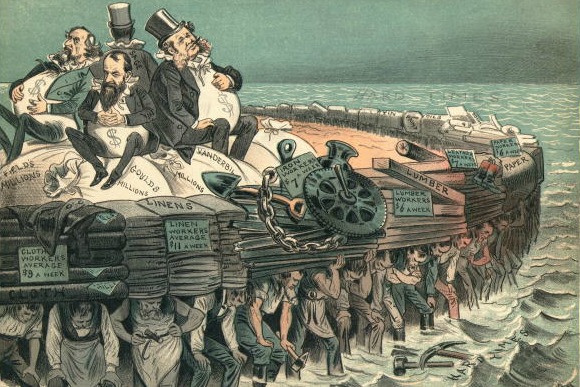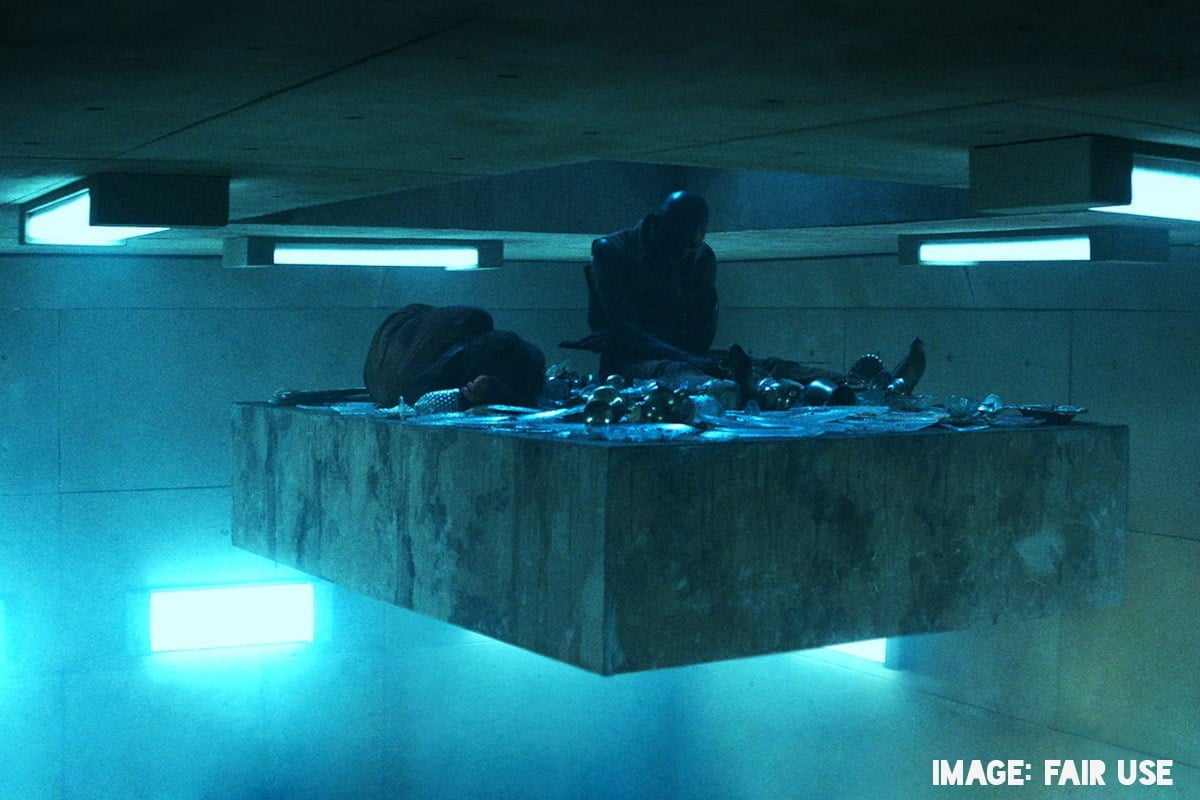Every year, figures are released showing how concentrated the world’s wealth is in the hands of a super-rich few. This inequality is graphically portrayed in sci-fi film ‘The Platform’, providing a vivid metaphor for the injustices of class society.
In the strange times that we live in, few films seem to feel as relevant or as poignant as The Platform.
This brutal Spanish science-fiction horror begins with the words “there are only those above, those below, and those who fall”.
This sets the tone for the rest of the film, making it incredibly relevant in this era of capitalist crisis that is unfolding before our very eyes.
The workers and wealth
 Our protagonist is a man named Goreng, who awakes at the beginning of the film to find himself in a concrete cell. This is part of a rather unique vertical prison simply referred to as ‘The Pit’. Each day an exquisitely crafted feast travels on a platform from level 0 downwards, stopping only momentarily at each level to allow the occupants to eat what they can before it moves on.
Our protagonist is a man named Goreng, who awakes at the beginning of the film to find himself in a concrete cell. This is part of a rather unique vertical prison simply referred to as ‘The Pit’. Each day an exquisitely crafted feast travels on a platform from level 0 downwards, stopping only momentarily at each level to allow the occupants to eat what they can before it moves on.
While there is hypothetically enough food to feed the occupants of all 333 levels, in reality, it is very quickly consumed by the upper levels, leaving nothing for those below. They either starve or are forced to resort to cannibalism as a way to survive.
This mirrors our own society, where the super-rich control the bulk of the world’s wealth. Those at the bottom go hungry, and are encouraged by the ruling class to turn against one another.
Yet, unlike the food of The Platform, the wealth that the ruling class hoards in our society is, in fact, produced by the very classes that most often go without.
Cynicism and disillusionment
Goreng is desperate for change and hopes for spontaneous solidarity amongst the Pit’s inmates. However, the atomisation and isolation of the inmates makes any action particularly difficult to accomplish.
Goreng nevertheless tries to change things. For example, he tries to convince the occupants of the levels immediately above and below to ration their meals so that the lower levels may eat.
Goreng’s cynical cellmate Trimagasi laughs at these attempts, calling Goreng a communist. He thinks it’s impossible to change the system; it’s just the way the Pit is, and no matter what Goreng tries, the upper levels will never care for the lower levels.
This attitude is typical of many in our society who, faced with the horrors of capitalism, lose hope, give up and accept the system as it is.
Faced with continuous failure, feeling hopeless and increasingly insane, Goreng resorts to sending messages to the chefs at the top of the Pit, hoping that somehow it leads to change. Ultimately, we as viewers are left not knowing whether these desperate attempts succeed at all.
Workers of the world, unite!
 Some of the ideas in The Platform are interesting and the film certainly highlights many of the injustices that we face in society today. It also shows some of the difficulties we face when trying to change society.
Some of the ideas in The Platform are interesting and the film certainly highlights many of the injustices that we face in society today. It also shows some of the difficulties we face when trying to change society.
Yet, The Platform offers no solutions to the situation it presents – perhaps because the Pit feels so utterly hopeless by design.
Unlike Goreng, we have no need to resort to sending cryptic messages to those at the top. We have no need to plead desperately for change that will likely never come. If workers are united, we can enact change on our own terms and carry out the socialist transformation of society.
While many of us are no doubt feeling isolated and even hopeless during the current COVID-19 pandemic, the reality is that workers produce all the wealth in society. United and organised, the working class has immense power, capable of changing society for the better.






